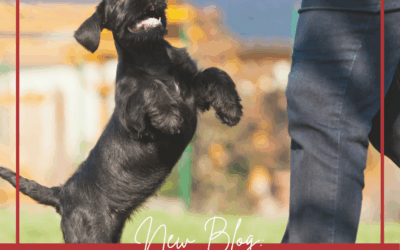stub·born
“He only comes when he wants to!”
“This breed is so stubborn and hard to train!”
“She knows what I’m asking but doesn’t feel like it!”
Clients are often quick to label their dogs stubborn or strong willed when their dogs aren’t compliant with their requests. But, let’s look at that definition. “Not changing one’s position in spite of good reasons to do so.” Are you giving your dog a good reason to come to you when you call them? Are you giving them a jackpot reward of cheese every single time you call them or are you calling them away from chasing a squirrel only to tell them “good boy?”
Or, have you really practiced in an incremental way, recalling off a squirrel or are you just hoping that he will? If you haven’t haven’t trained your dog well enough, or practiced with enough distractions for them to be able to perform that behavior in that specific environment, they don’t really know exactly what you’re asking them to do, so won’t be able to do what you’re asking because they just don’t understand what you want them to do.
While I may not know exactly what your dog’s training difficulty is yet, I do know this. Your dog is not stubborn. Your dog is either unmotivated, untrained, or fearful. Trainers refer to these as “why” or “what” problems. “Why” should your dog do what you’re asking (motivation issue) or “what” are you asking the dog to do (training issue)?
If you’re asking your dog to do something, he deserves to be paid for it, with food or something else he finds motivating. And no, praise is not a paycheck. You don’t work for free and neither do dogs. No matter how much you love your job, you go to work to get a paycheck. If your boss stopped giving you a real paycheck and only started saying “great job this week!” – would you come back to work next week? (Probably not.)
Let’s look at a common “stubborn” scenario that I get from clients. Dog is pulling on leash. What’s the motivation? Dog wants to walk faster than the humans do to get to some place to sniff, pee, or maybe the dog sees a dog or person they’d like to greet. Or, maybe your dog is fearful and they’re pulling because they’re afraid and their motivation is avoidance/flight to get away from something they perceive as scary. These things are all much more motivating to that dog in that moment than walking nicely next to their person. But none of this means your dog is stubborn. It means they’re a normal dog and they are motivated by things that you may not smell, see or relate to. It doesn’t make them a bad dog – in fact it makes them a good, normal specimen of their species! If you punish them for pulling, with things like prong or shock collars or leash corrections, it can have fallout effects, like punishment often does, resulting in fear or unintended associations.
If you want your dog to walk with a loose leash then we have to practice it, incrementally, with realistic expectations. Or, we have to address what is making them fearful. But, we cannot expect that as soon as you walk out the door, after being pent up inside for a long period of time, that your dog will immediately walk with a loose leash. We also need to ensure we are meeting breed and species specific enrichment needs like providing ample opportunities to fulfill prey drives and social needs. If your dog has a desire to chase critters or be social with other dogs or people and you’re not giving them an opportunity to fill these needs, then it is unreasonable to expect them to ignore these out in the world. Walking on a leash, loose or not, is not a skill that comes naturally to dogs and I think most humans don’t understand this. We absolutely can train loose leash skills and provide sniffing and enrichment opportunities. Lack of training or proficiency in a skill doesn’t mean your dog is stubborn but it might mean he needs more practice in that skill.
Remember, your dog is not stubborn. Your dog is either unmotivated or untrained. Next time you’re tempted to say your dog is stubborn, pause and ask yourself: do we have a “why” problem or a “what” problem? And then address it from there. If you need help, you know I’m here. Contact me and schedule if you need one-on-one help.
Be sure to sign up for my free weekly newsletter so you don’t miss out on big announcements, videos, personal stories, client successes and more! And don’t forget about my self-paced courses, available here.
Happy training!
![]()




